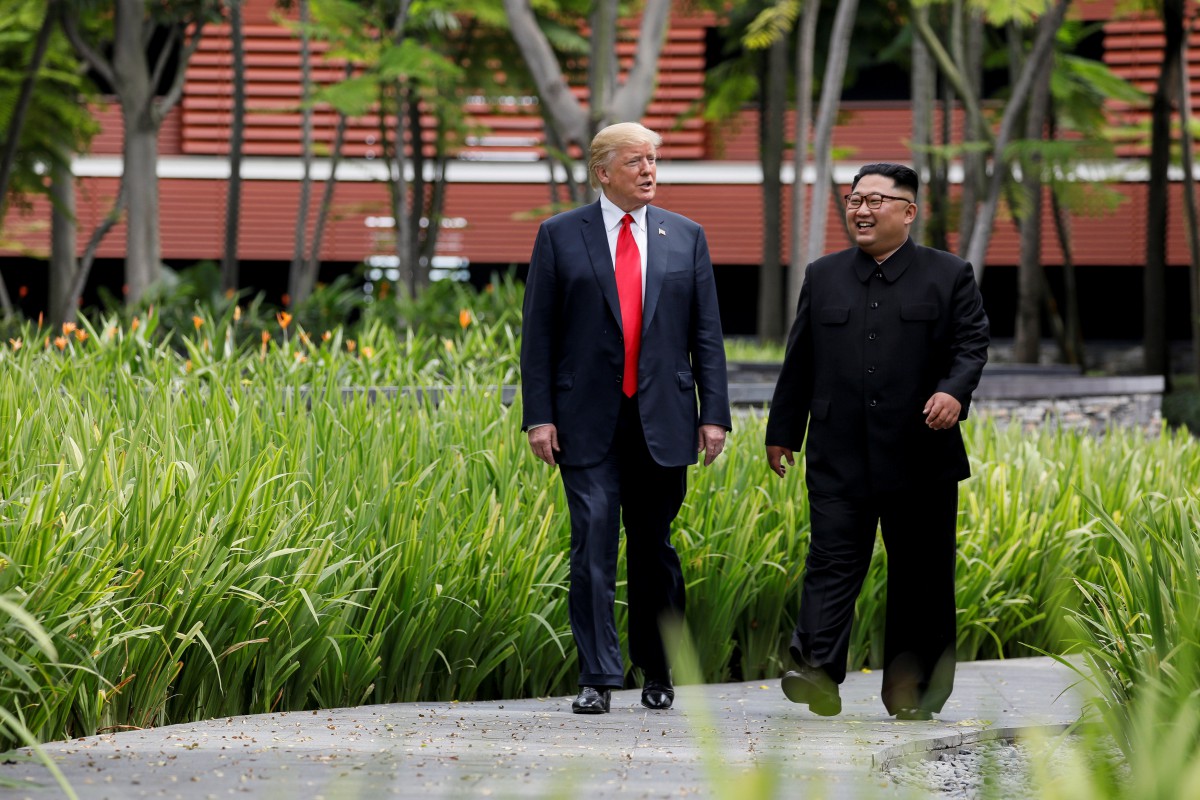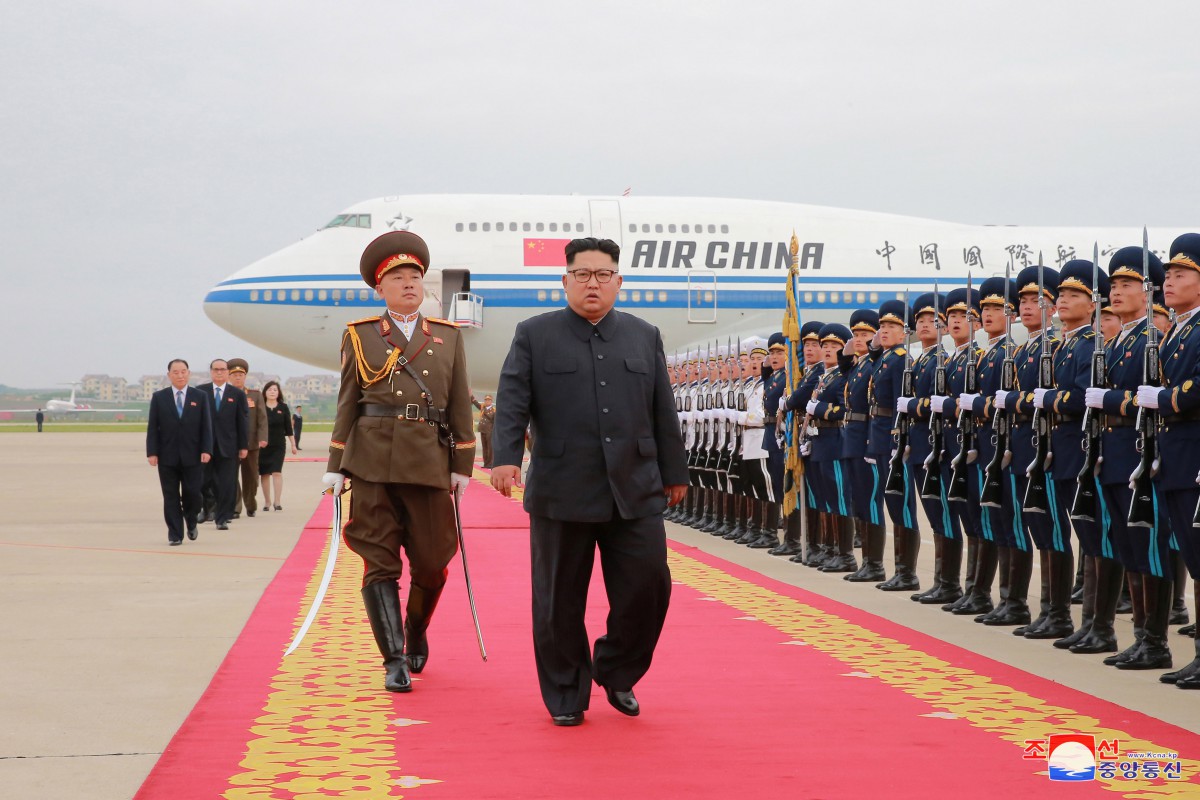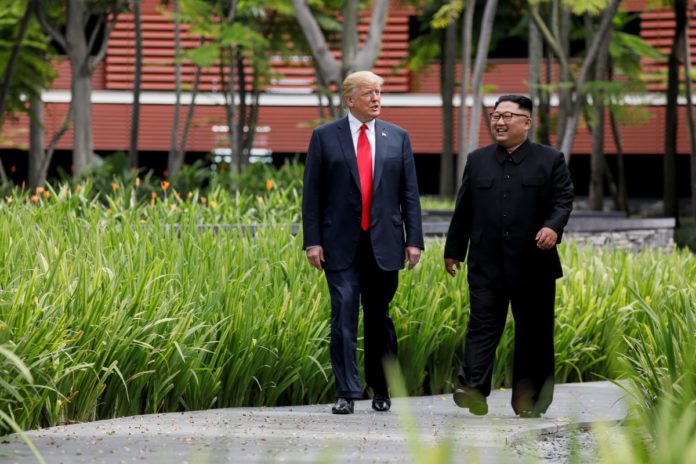IT’S looking increasingly likely that Vietnam will be chosen to host the second summit between US President Donald Trump and North Korean leader Kim Jong Un in the coming months.
US and North Korean officials have reportedly met several times in Hanoi, in northern Vietnam, to arrange details, and even Trump himself has expressed a preference for the Southeast Asian country.
Vietnam has shown its eagerness to host the political circus, reportedly telling high ranking South Korea officials in December that it was interested, and also informing North Korean Foreign Minister Ri Yongho of their desire to host during his official visit in late November.
But the recognition of such a global event doesn’t come for free and any summit is guaranteed to cost a pretty penny; something Singapore, the last host, found out the hard way.

US President Donald Trump and North Korea’s leader Kim Jong Un walk together during the US-North Korea summit on June 12, 2018. Source: Reuters/Jonathan Ernst/File Photo
The costs of diplomacy
The biggest expenditure Vietnam can expect to bear is on security.
Unlike other political events, the high-profile nature of the occasion and the two people in question raises the bill far above other diplomatic meetings.
According to Observer, Singapore spent approximately US$6 million on security alone. The visible bodyguards and police presence were only the tip of the iceberg.
Speaking after the event, Singapore’s prime minister Lee Hsien Loong told reporters the security effort involved “all-round protection and in-depth protection – air, sea and land – against attack and against mishap.”
The media circus
Where Trump and Kim go, the media will follow. The scene in Singapore was an absolute media circus. While there is likely to be slightly fewer media attendees, given the less historic nature of their second meeting, there will still be hordes – and these all need to be accommodated.
It’s a packed and buzzing media centre already!! 2500 journalist covering the Trump-Kim Singapore summit. The biggest media contingent ever in Singapore. #TrumpKimsummit @IndiaToday @connected2india @aajtak pic.twitter.com/jjxToa0lwv
— PunamSharrma (@punams_7) June 10, 2018
Singapore reportedly spent US$3.5 million setting up the media centre at the Formula One track to provide news outlets from across the globe the resources to do their jobs.
Over 2,500 journalists, camera operators, TV hosts descended on they small city-state for the summit. And they all need feeding.
Caterers were working around the clock to keep everyone fed, with a warehouse handed over to just food.
Food heaven spotted at the #TrumpKimSummit pic.twitter.com/77KjQ48ROR
— Aurindom Mukherjee (@AurindomM) June 10, 2018
Accommodation for the staff accompanying Kim was also paid for by Singapore as the US refused to foot the bill for North Korean officials.
Just prior to the June 12 meeting, Singapore’s Minister for Foreign Affairs Vivian Balakrishnan announced the Singapore government would be paying for the North Korean contingent’s hotel bill as it was “hospitality that we would have offered them.”
Wider effects
All of that is just the direct costs of hosting such an event, the knock-on effect on business is no minor cost.
Whole areas of Hanoi near the meeting venue will have to be cordoned off, resulting in a loss of business for those in that area.
Several businesses will be forced to close for the duration as they are in no-go zones.
Roads will be closed if either Trump or Kim decide to travel, causing great inconvenience for residents and backed up traffic.
It all adds up.

North Korean leader Kim Jong Un is seen returning to North Korea after the summit with U.S. President Donald Trump, in this picture released on June 13, 2018 by North Korea’s Korean Central News Agency. Source: KCNA via Reuters
The tally
Singapore’s bill for direct costs ended up coming in at US$12 million, slightly less than the anticipated US$14 million.
This was easily absorbed by the third richest country in the world. At the time, Prime Minister Lee said it was a cost the country was “willing to pay,” but the Singaporean people were slightly less gracious.
Singapore is also in the running to host this time around – although less likely than Hanoi at this point – and people are already voicing their displeasure at the prospect.
Singaporean Zai Tandel said online they would rather spend the money on poor Singaporeans than deploying security for Trump and Kim.
One person commented: “If they themselves pay for it including our security bills during those few days. Otherwise, go elsewhere please.”
Another simply said, “Please don’t come back….. don’t waste our taxpayers money.”
If this is how people feel in one of the richest countries in the world, how are people in Vietnam – with a GDP per capita almost 1/25th that of Singapore – going to feel about the extra costs?





